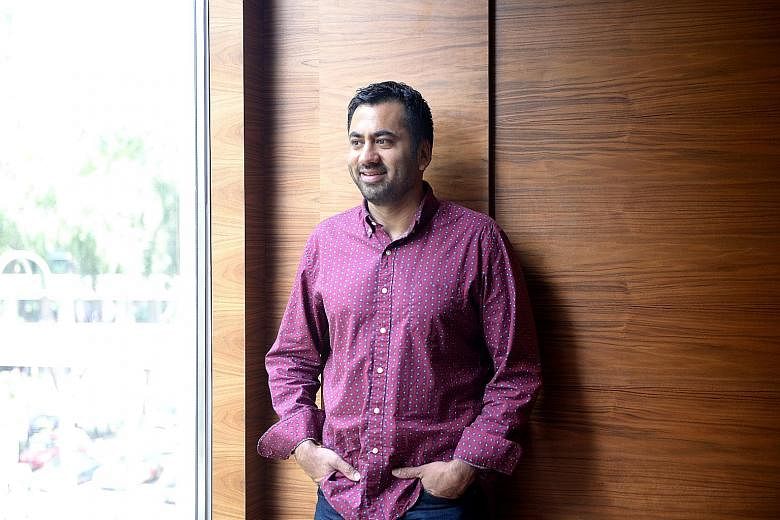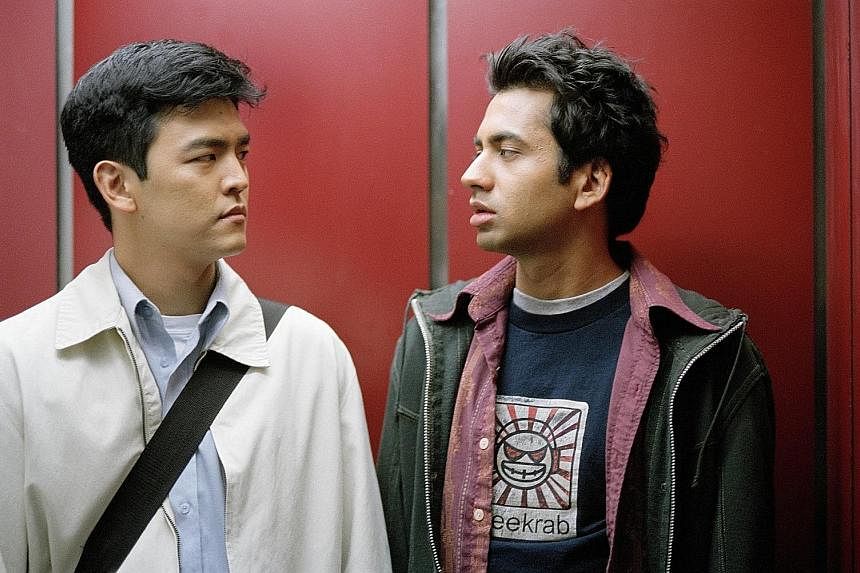WASHINGTON • A lot of people first became acquainted with Kal Penn after he starred as a stoner with a serious case of the munchies in the cult classic, Harold & Kumar Go To White Castle (2004).
But in the years leading up to his breakout, he, unlike most struggling actors, faced an added layer of difficulty: Most roles were stereotypical parts that entailed heavy accents and broken English.
The 39-year-old actor aired his early career grievances on Twitter after he stumbled upon scripts from his younger years.
He wanted to avoid having to do accents, but casting directors would insist.
"Tried to convince them to let me speak without an accent & make it funny on the merits (was told no)," he tweeted.
He also said when he was asked to make his accent "more authentic", it "usually meant they wanted Apu" - the immigrant Kwik-E-Mart owner from The Simpsons television series.
The parts entailed cologne jokes and profuse sweating, not to mention names such as Ravi Tulu Singh Shankar Ramanji.
Penn has had a varied, successful career since playing Kumar and he has managed to mostly avoid stereotypical Indian characters. He was a series regular on House and How I Met Your Mother and is starring opposite Kiefer Sutherland on Designated Survivor, playing the White House press secretary.
But he had to weather quite a few indignities to get to where he is. And he is not alone.
His experiences mirror those of actor Aziz Ansari, 34, who mined his early career obstacles for comedy on his Netflix show, Master Of None. On that series, Ansari plays Dev, a struggling actor.
At one point, he is trying out for a bit part as a cab driver on a cop show and the casting director tells him to read his lines with an Indian accent.
Dev refuses, even though he knows he will lose the part. Later, he complains to his friend Ravi (Ravi Patel), who is also an actor, but does not mind putting on an accent to get a pay cheque.
"Isn't it frustrating so much of the stuff we go out for is just stereotypes?" Dev asks Ravi. "Cab driver, scientist, IT guy."
Meanwhile, in the real world, many non-stereotypical roles for actors of colour are being given to white actors - think Scarlett Johansson in the adaptation of manga series Ghost In The Shell (2017) or Rooney Mara as Tigerlily in Pan (2015).
As Ansari's Master Of None co-creator Alan Yang told The Hollywood Reporter, the only way for Asian-American actors to make it to A-list status is for someone to take a chance on a non-A-list Asian-American actor.
"I understand the argument that the business is risk-averse, but that's just an excuse to be cowardly," he said during the interview.
"(Hollywood) cast Chris Pratt in Guardians Of The Galaxy and Jurassic World. He wasn't a movie star until they put him in those movies. For people who are making decisions, you have to take that risk."
Penn took a break from acting to serve in former United States president Barack Obama's administration, so he is not shy about politics. This is also not the first time he has openly discussed discrimination.
Earlier this year, someone left a hateful comment when one of Penn's Instagram posts was critical of the travel ban.
"You don't belong in this country," one commenter wrote (Penn, by the way, is from New Jersey).
The actor responded by starting an online fund-raiser to benefit the International Rescue Committee, titled "Donating To Syrian Refugees In The Name Of The Dude Who Said I Don't Belong In America".
He was hoping to raise US$2,500 (S$3,500), but pulled in more than US$860,000.
WASHINGTON POST


